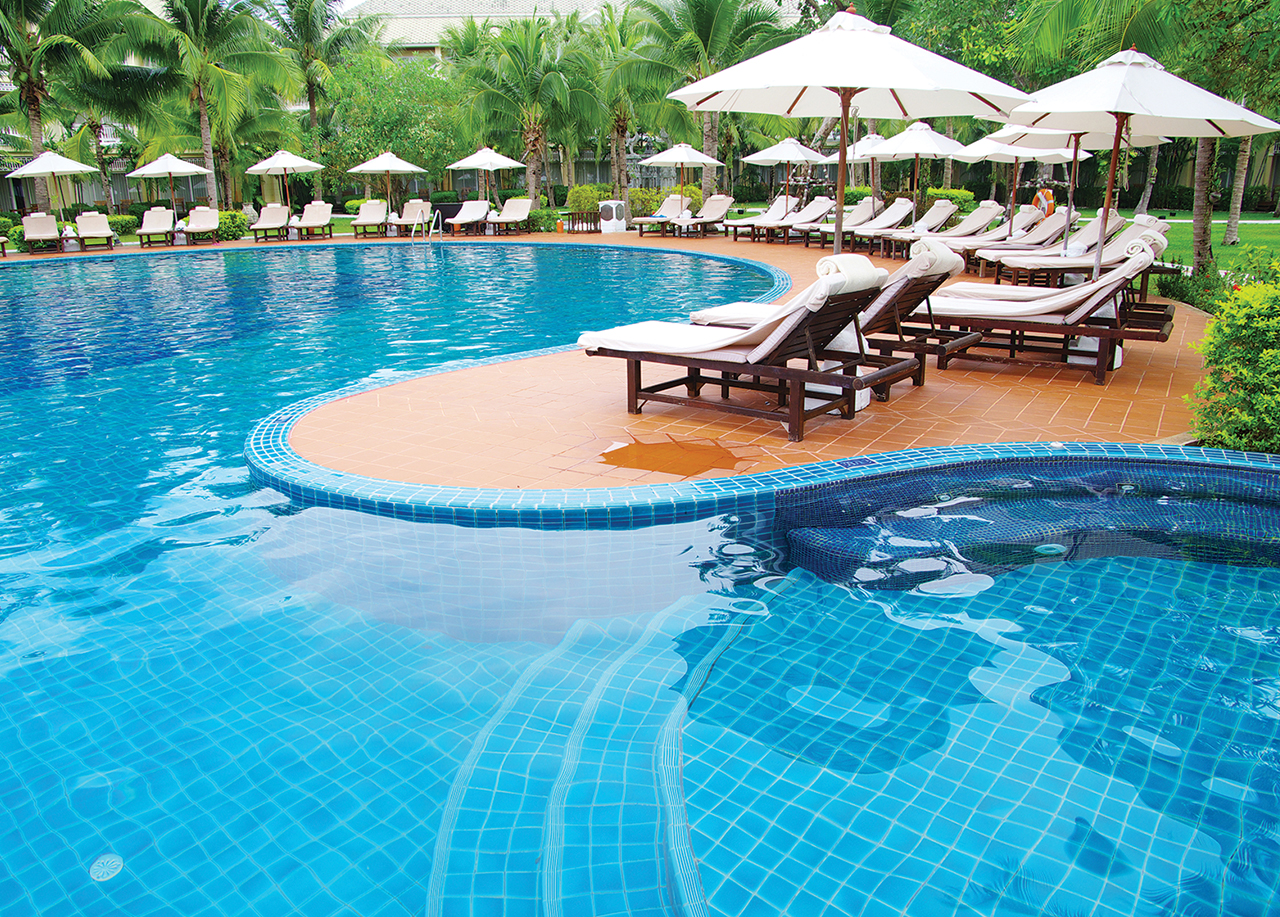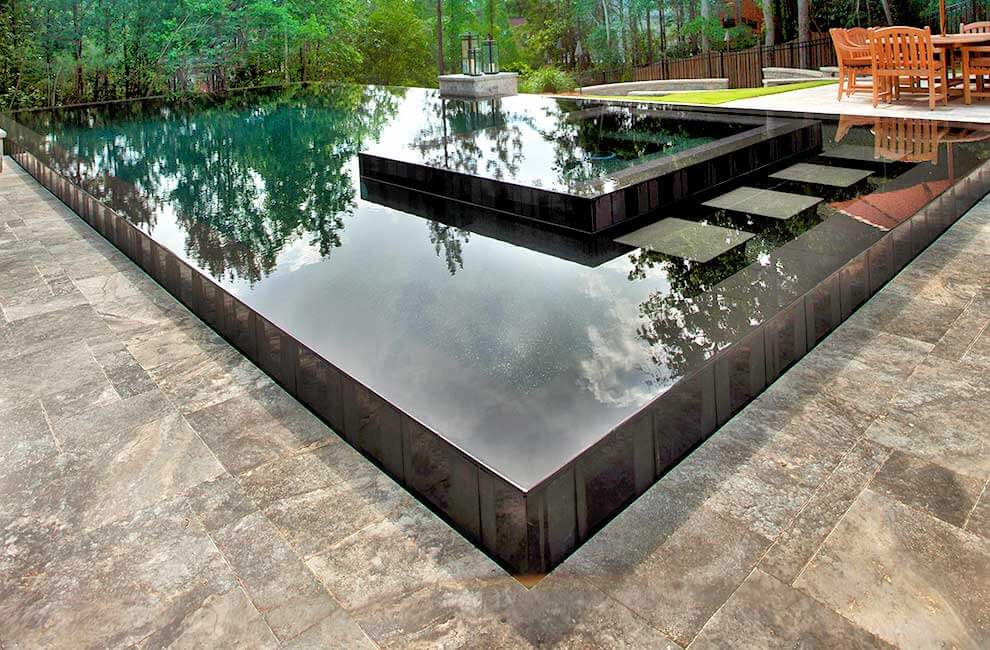

Swimming pool main drains are much more than just that circle with all the little circles sitting at the bottom of your pool. A Commercial Main Drain - The photo does not do it justice, as you can imagine, this is a very large drain, several feet in diameter! This is a great way to ensure that your drain is clear, but it does require that you drain and refill your pool afterwards. There is also a pressurized clog remover that you can use on the main drain in your swimming pool to unclog any debris from the main drain with a highly pressurized blast of air. Cleaning the swimming pool main drain is important so that it doesn’t become clogged and so that it can continue to perform its job properly. There’s very little maintenance involved in a main drain of a swimming pool other than cleaning it and the cover. During this liner renovation the homeowner did decide to change from 1 main drain to 2 for a safer and more efficient pool Two main drains were installed by the Pool Guy during this renovation job, an electric drill is not normally used for this to avoid any potential tears in the liner during installation Two main drains were installed by the Pool Guy during this renovation job
#POOL OVERFLOW DRAIN CODE#
New residential swimming pool code requires two main drains to be installed into the pool bottom, at least 5′ apart, and to also have these dome-shaped covers over their main drains. The government did not make it mandatory that private pools take steps to replace existing main drains, however, if you will be doing any work to your pool it’s a great time to make the change for safety. This act stated that any public swimming pools have dome-shaped covers over their swimming pool main drains so that the possibility of entrapment is reduced. In 2007 the United States passed the Virginia Graeme Baker Pool and Spa Safety Act. What a swimming pool main drain actually does is act as a suction that takes the water out of the pool and sends it back to the filter to be cleaned, so that it can then redistribute it back into the pool. Some pools go from construction to demolition without ever being drained. In fact, they don’t or rather, that’s not their main job. One of the biggest misconceptions about swimming pool main drains is that they actually drain the pool. Because of that, they don’t take care to properly guard their swimming pool main drain, until tragedy strikes.

The problem is that they can be very dangerous pieces of equipment in the pool, and that many pool owners don’t realize it.

But locating them isn’t actually the problem with swimming pool main drains. The only problem with this approach is that it encourages you to dump the water in the nearby surrounding area in order to speed up the process. The main drain in your swimming pool is very easy to locate – it sits right at the bottom of the pool. If your above-ground pool is overflowing from rain, you can often get by just using a bucket to scoop the water out especially if it’s a small pool such as an Intex or Bestway setup. Remember that some chemicals do not evaporate with the water so try to leave the water to evaporate rather than dumping it.Main Drains for Swimming Pools Anti-Entrapment Style This means you lose less and save yourself money replacing them. When you leave the water to overflow it is losing the water when the chemicals are the most diluted. If you let the water overflow, rather than draining it, you will lose less chemicals. Try to leave this until you are completely certain that there will be rain to avoid wasting water or chemicals unnecessarily. If there is a high chance of a lot more rain it may be worthwhile draining some water in advance. Be sure to check that storm water drains are cleared of any debris so that water can drain.Īlso consider what effect the diluted chemicals may have on surrounding areas If the pool has been well-built it should have adequate drainage in the surrounding area to avoid flooding. If the overflowing water is likely to cause flooding or damage anything then you should empty some water to avoid this. If the pool overflows, where will the water flow? Is there anything that may be damaged by the water overflowing? That way you conserve as much of the water (and chemicals!) as possible. In general, it is better to let the water overflow rather than draining it out. Water is a precious commodity so you should avoid emptying water out unless it is absolutely necessary.


 0 kommentar(er)
0 kommentar(er)
